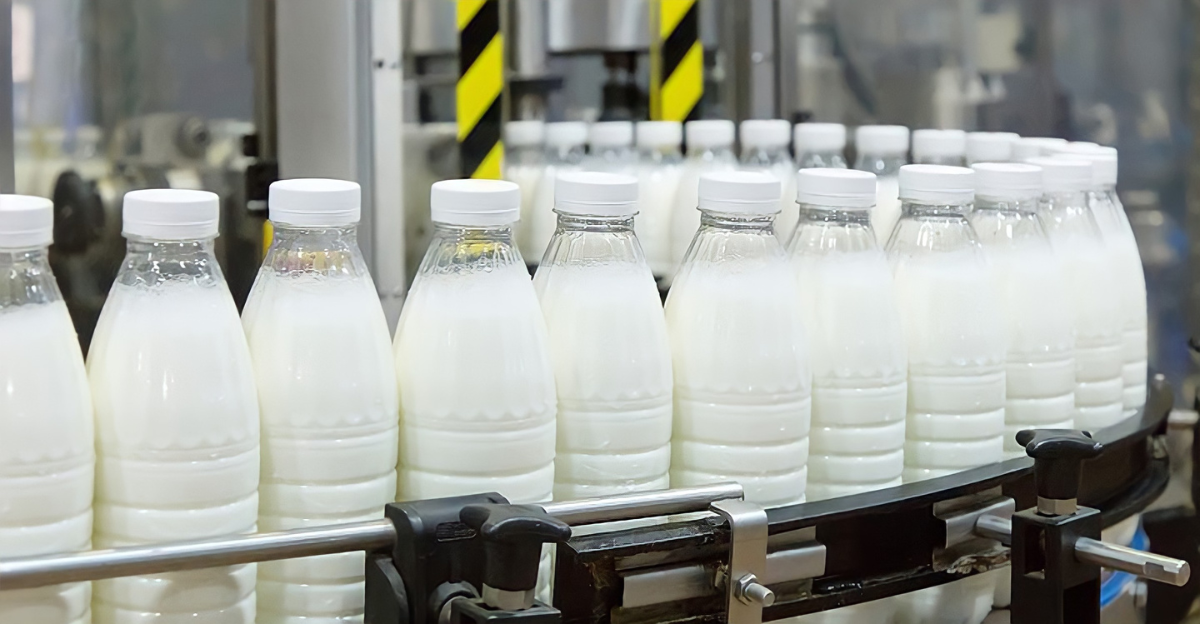
A significant turning point in the growing trade tensions between these closely related economies is marked by Mexico’s recent blockage of $1 billion worth of U.S. milk imports. Even under agreements like the United States-Mexico-Canada Agreement (USMCA), which ostensibly provide duty-free access for a variety of agricultural products, including dairy, this action highlights the fragility of trade relations.
The Mexican blockade, which threatens to displace billions of dollars in U.S. exports annually, is a part of a larger national strategy to achieve dairy self-sufficiency by 2030. In order to increase domestic milk production, the move includes significant government subsidies and price guarantees. This shows that trade tensions today are about more than just tariffs; they are about economic sovereignty and strategic industries.
American-Mexican Trade in Historical Context
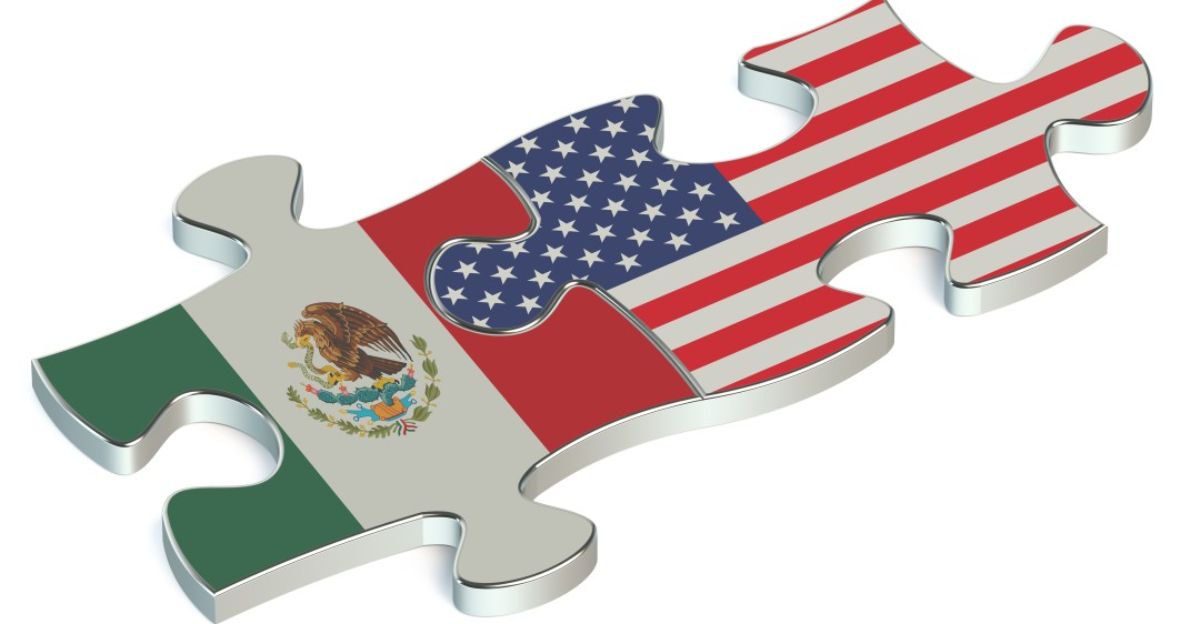
Despite their strong economic ties, Mexico and the United States have a history of trade disputes. These trade frictions have frequently concealed larger geopolitical friction points, ranging from disagreements over steel, aluminum, and sugar tariffs to disputes involving NAFTA and its successor, USMCA.
Among the significant historical events are the United States’ imposition of 25% tariffs on Mexican steel and aluminum in 2018 on the grounds of national security, which led to Mexico imposing retaliatory tariffs on American agricultural products. These cycles show a pattern in which economic retaliation is a sign of bilateral mistrust as well as one of its tools.
Mexico’s Plan for Dairy Self-Sufficiency

With a $4.1 billion investment plan announced in 2025, Mexico hopes to replace 80% of its current imports from the United States by increasing domestic milk production from 13.3 billion to 15 billion liters by 2030. With subsidized consumer prices and above-market guaranteed prices for Mexican producers, this innovative policy establishes a dual-market system with the goal of quickly increasing local production capacity.
The policy poses a serious threat to American dairy exporters who have relied on Mexico as their primary export market by dislodging up to $2.1 billion in U.S. dairy imports each year. This state-driven strategy upends the USMCA’s free trade regime and foreshadows a larger protectionist countermove intended to increase resilience in the face of escalating external trade uncertainties.
Economic Effects on the American Dairy Sector

The blockade of Mexico and other trade tensions pose serious economic risks to the U.S. dairy industry. Approximately 25% of all U.S. dairy exports, or $5.5 billion annually, go to Mexico. U.S. dairy producers have already lost billions as a result of retaliatory tariffs and import restrictions, which also threaten farmgate revenues and destabilize rural economies.
Prior trade disputes resulted in a significant decline in Mexican sales as tariffs made U.S. dairy cheeses and butter less competitive. These effects ripple downstream, impacting farmers, distributors, and processors due to the dairy supply chain’s interconnectedness.
Diplomatic and Political Aspects
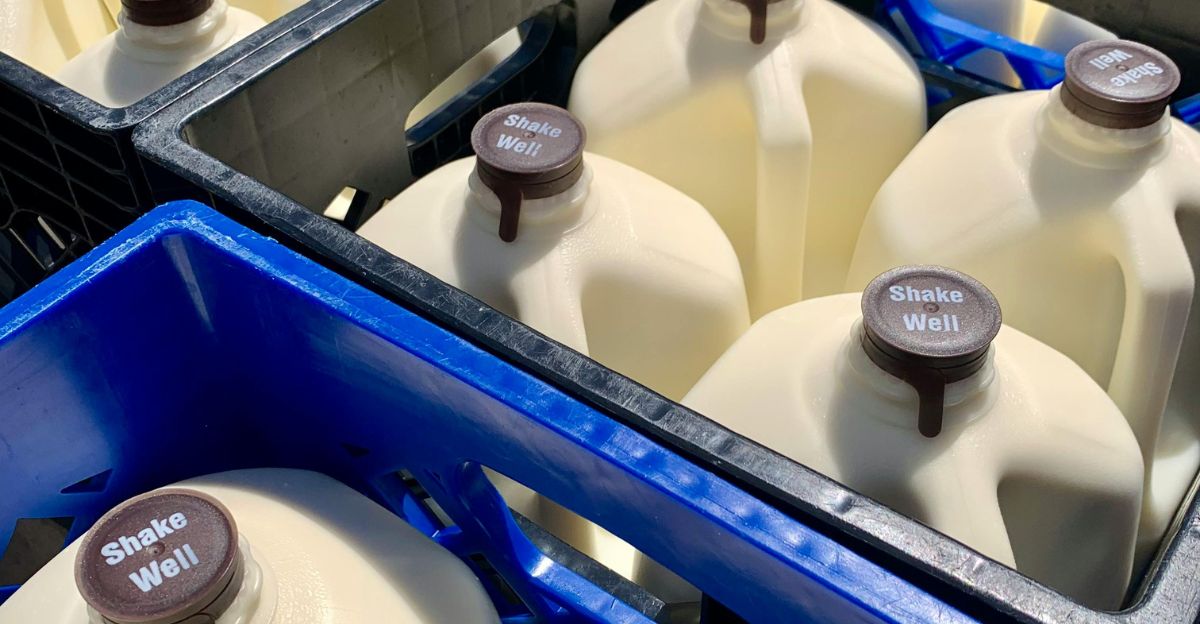
Dairy and other industry trade disputes are frequently used as stand-ins for more significant political and diplomatic conflicts. Mistrust and retaliatory measures related to more general concerns like immigration, security, and national sovereignty are the main drivers of the 2025 partial trade war between the United States, Mexico, and Canada.
The dairy blockade in Mexico is an example of an action that challenges U.S. influence and shows opposition to perceived unilateral impositions. It is a political statement as much as an economic one. Beyond trade, the U.S.’s use of tariffs disguised as national security measures has sparked a diplomatic backlash that affects bilateral relations in areas like border enforcement and drug trafficking cooperation.
Developing Global Context and Market Dynamics
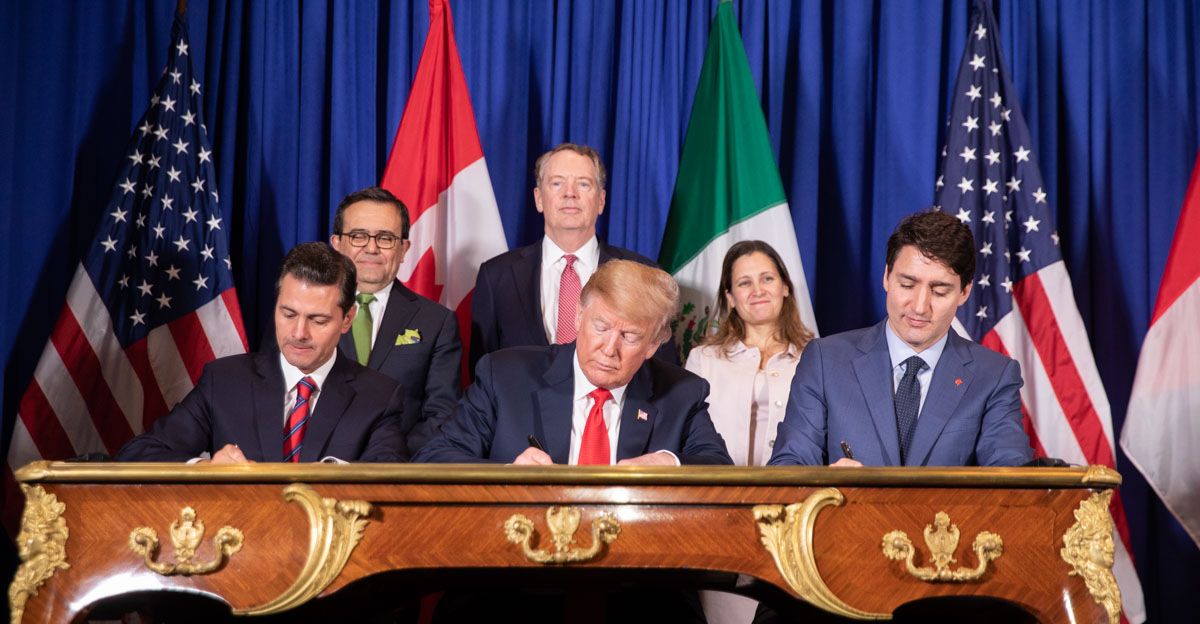
A global trend of nations seeking food security through local production as geopolitical risks increase is exemplified by Mexico’s growth in domestic dairy production amid trade friction. This movement has been accelerated by increased global competition for agricultural commodities and trade disruptions during the COVID-19 pandemic. Despite economic inefficiencies, protectionism is increasingly being justified by countries in the name of security or sovereignty, as demonstrated by Mexico’s plan for dairy self-sufficiency and U.S. tariffs and retaliation.
Traditional trade relationships are changing as a result of this localizing shift in supply chains and technological advancements in production and genetics. Losing market share in Mexico might force U.S. exporters to change to more competitive international markets or innovate at home, but these changes come with uncertainty and transition costs.
Strategic and Psychological Views
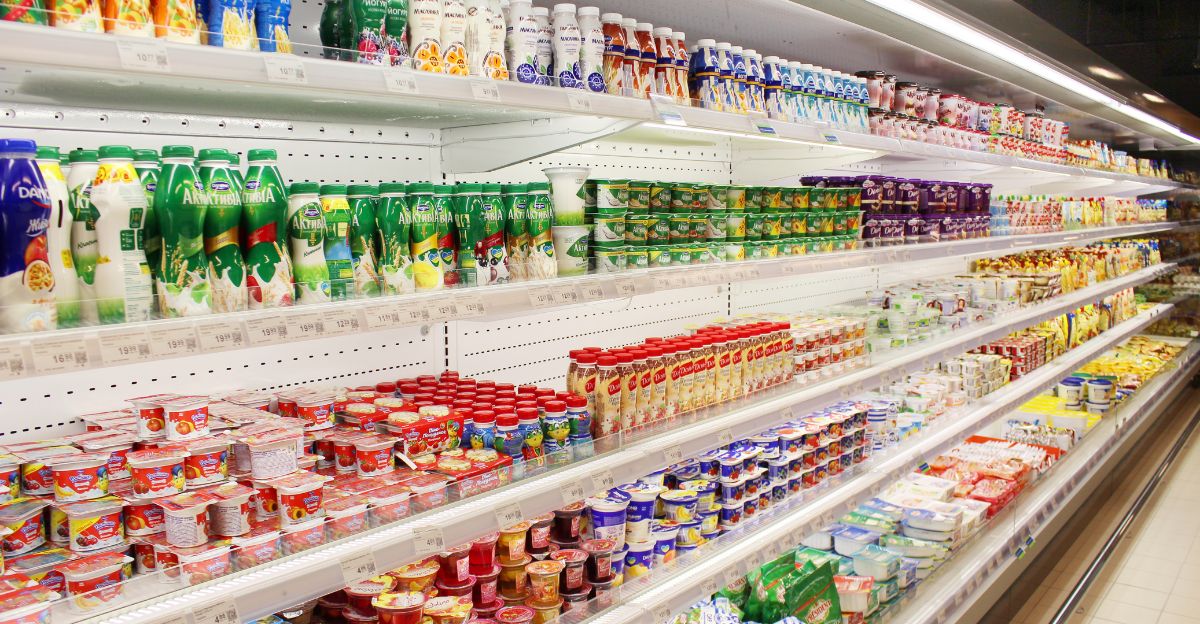
Psychologically speaking, trade wars such as these highlight the traditional zero-sum game mentality that permeates international relations, where the success of one country is interpreted as the failure of another. Mexico’s aggressive dairy policy, which aims to rewrite power dynamics, can be construed as a nationalistic response to decades of economic reliance on the United States.
Strategic signaling intended to compel better terms or political leverage is reflected in this approach. Since a protracted trade dispute invariably harms both sides, the challenge for U.S. stakeholders is to overcome emotional and political biases that favor confrontation over cooperation. For policy frameworks seeking to minimize harm or achieve a compromise, it is essential to comprehend these emotional undercurrents in addition to economic facts.
Effects on the Supply Chain and Wider Industry Ripples

More than just the dairy industry is impacted by the restriction on U.S. milk imports and the ensuing trade disputes. Because the U.S. and Mexico’s agricultural and manufacturing supply chains are so closely linked, disruptions in the dairy trade have an impact on related industries like feed production, packaging, transportation, and retail. Price volatility in milk markets can impact consumer prices and demand patterns by driving up the cost of processed foods.
The dispute’s stakes are raised by the collateral damage, which affects employment and financial markets across several regions. The predicament of the dairy industry provides an example of how disruptions in a single sector can develop into systemic trade disputes with far-reaching economic repercussions.
Trade Agreement and Legal Difficulties

The dairy disputes show how trade agreements are ineffective at limiting national economic interests, even though the USMCA was intended to offer a stable trade framework. One could argue that Mexico’s assertive dairy policies go against the letter, if not the spirit, of the USMCA’s trade protections and tariff-rate quotas. Political considerations can take precedence over economic rationality due to the slow and occasionally insufficient enforcement mechanisms and dispute resolution procedures.
Additionally, using emergency or national security powers to impose import tariffs is an extension of trade war tactics that makes conventional trade law more complex. When national interests fiercely compete for commoditized goods like dairy, it is predicted that trade wars will inevitably break out. This legal ambiguity increases uncertainty for exporters and policymakers, making a resolution a long-term challenge.
Conflicts Over the Dairy Trade’s Effect on Rural Economies
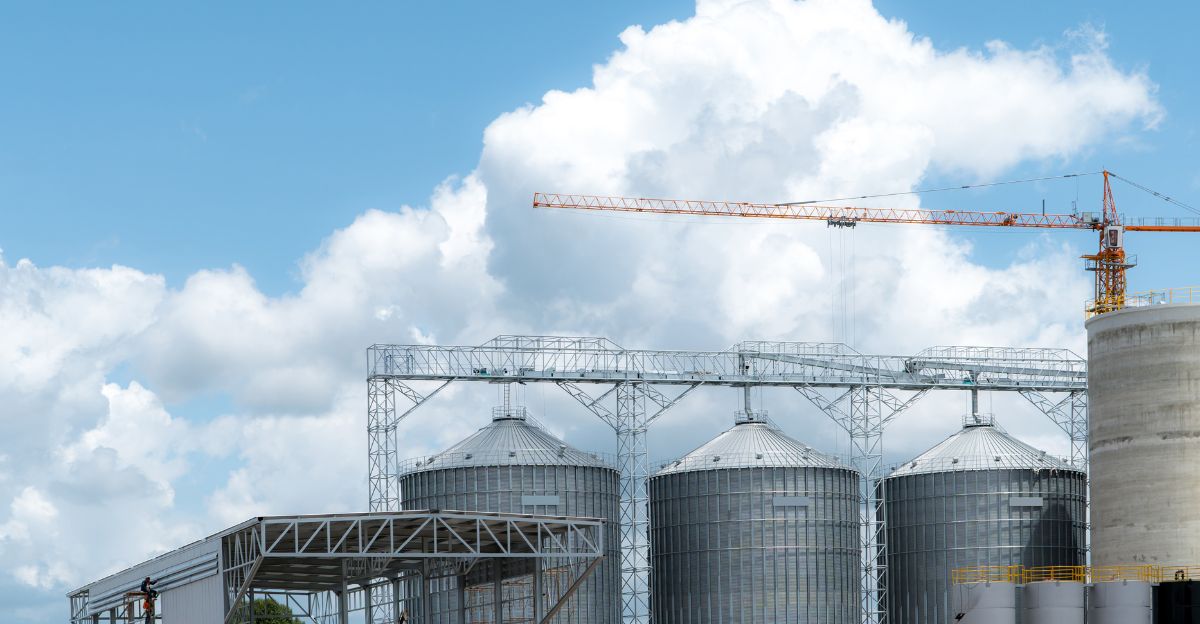
The dispute over the dairy trade has a significant effect on American rural economies, with farmers losing money as exports fall. Small family farms that depend significantly on international trade are especially at risk because they are too small to reroute products or absorb shocks effectively. Because of the excess supply caused by the bottleneck, prices are pushed down, and jobs in farming communities are put in jeopardy.
Similar economic repercussions are demonstrated by historical precedents from the 2018 steel and aluminum tariff disputes, underscoring the socioeconomic effects that go beyond GDP figures. The dairy industry now faces a precarious future that combines social and economic hardship, supporting the idea that trade wars have actual human costs.
Is a Trade War Good for Business?
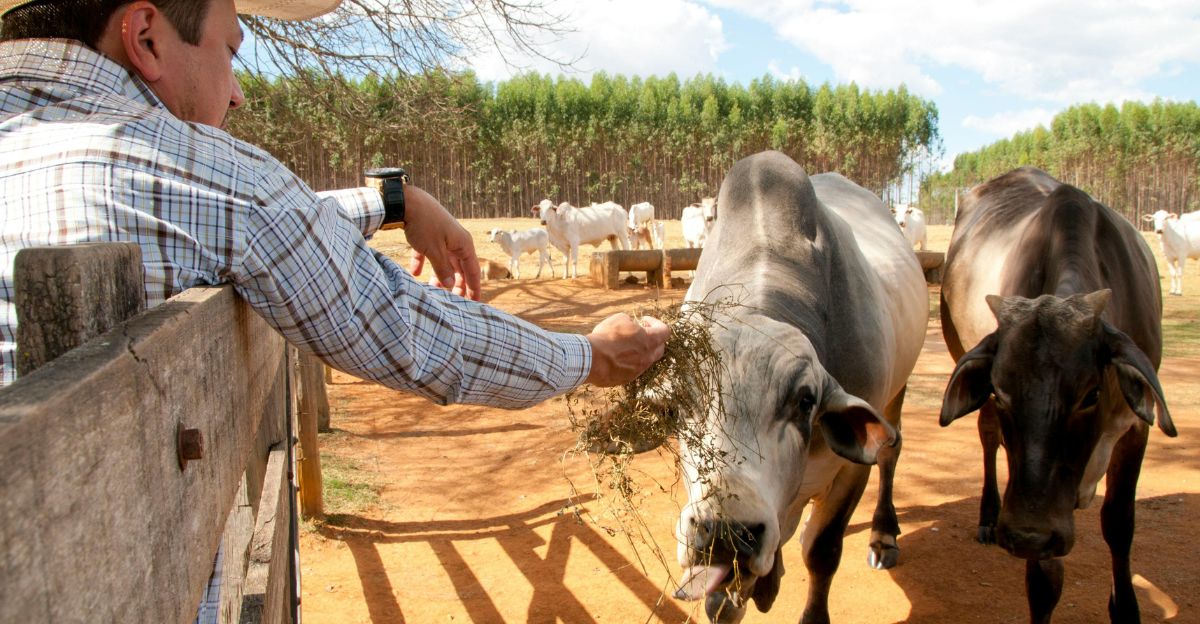
According to a contrarian viewpoint, the U.S. dairy industry may be encouraged to innovate and diversify its markets by Mexico’s dairy protectionism, enhancing its long-term competitive resilience. Trade shocks frequently spur changes toward higher value-added products or efficiency gains. According to some experts, a controlled trade dispute could correct bilateral trade imbalances and guarantee more favorable conditions for homegrown producers.
Additionally, Mexico’s aspirations for self-sufficiency may create new markets for American exports of equipment, technology, and genetics. Despite the pain, this might be a necessary evolutionary step for the dairy industries in North America to adjust to the shifting political and economic landscape.
Unconfirmed Theories and Prospective Situations

Theoretically, ongoing disputes over the dairy industry could turn into Mexico’s more general economic isolationism, which would impact high-tech manufacturing as well as cross-border collaboration in security and migration control. The U.S. may be forced to adopt a defensive stance on several trade fronts if Mexico’s strategy extends beyond dairy to other agricultural products.
Another theory is that these trade policies may be indirectly impacted by geopolitical competition involving China’s investments in Mexico, which aims to undermine American regional dominance. The significance of proactive diplomatic engagement before entrenched trade wars become unmanageable is underscored by these unverified but plausible scenarios.
The Conflict over Economic Sovereignty in the Dairy Trade War
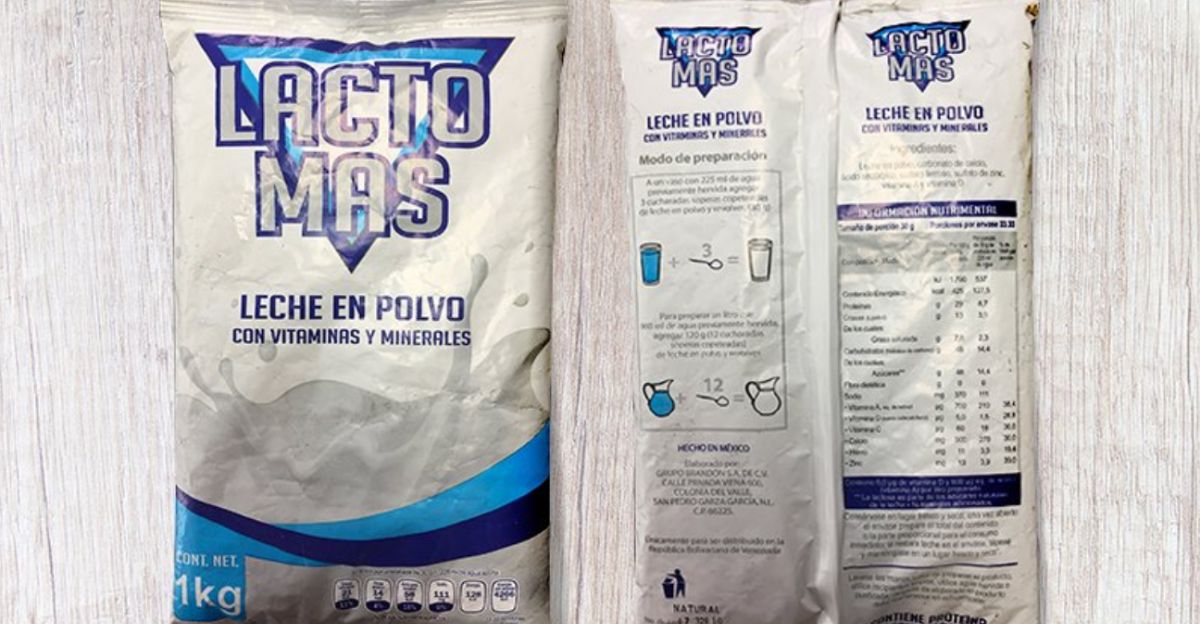
Mexico’s dairy blockade is a statement of autonomous economic identity rather than outright protectionism, and this trade war can be viewed through a new lens as an economic sovereignty conflict. According to this framework, trade wars are not just about tariffs; they are also about control of vital industries that are necessary for the stability and independence of a country.
In a globalized economy that frequently necessitates dependency, it explains policies like import restrictions and milk subsidies as acts of sovereignty. This model clarifies why economic interdependence by itself cannot avert conflict by making trade wars inevitable where claims to sovereignty clash.
Unexpected Information and Patterns

Interestingly, 84% of Mexico’s dairy imports originate in the United States, making the United States extremely susceptible to changes in Mexican trade policy. Despite Mexico’s efforts, the country’s milk yield still falls 280% short of U.S. standards, exposing both significant efficiency gaps and significant potential returns on investment.
Furthermore, U.S. dairy exports support 3,200 jobs per billion dollars and create almost $4 in economic activity for every $1 exported. Therefore, any disruption has significant domestic economic repercussions. These figures highlight the high stakes involved in the dairy trade dispute as well as the asymmetrical dependencies.
In Conclusion

Economic sovereignty, political competition, and strategic realignments are the driving forces behind a larger, unavoidable trade war, which is exemplified by Mexico’s $1 billion blockage of the U.S. milk trade. Fundamental differences in national agendas and policy priorities intensify conflicts that disrupt vital sectors, even in the face of decades of tightly integrated supply chains and trade agreements such as the USMCA.
The intricate interaction of psychology, diplomacy, and economics that drives trade wars is best illustrated by the dairy dispute, underscoring the necessity of strategic foresight and nuanced understanding. In addition to changing North American dairy, this trade war will mark a significant reorientation of global trade relations, where economic interdependence is no defense against unavoidable conflict.